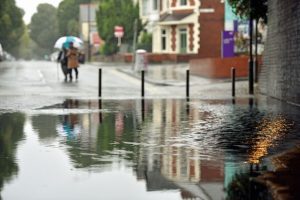Last summer, Wales saw record breaking temperatures. The heatwave conditions lasted for much of the warm season and the city experienced roads melting and reservoirs drying up. The rainfall was almost half the average for a Welsh summer.
New research has shown that Wales could see similar conditions become the norm due to climate change. Experts say that if greenhouse gas emissions continue to increase everyday life could be severely affected. If greenhouse gas emissions continue to climb, summer temperatures could soar up even rapidly and sea levels could rise up to 1.15 meters by 2100.
The UK is now to expect hotter, drier summers and warmer, wetter winters.

What to Expect
Temperature
The size of the temperature increase depends on the region, with the largest increases affecting the south. But for all regions, the amount of warming is highly dependent on their emissions scenario. Wales is more likely to see higher average temperatures during the winter. Winter temperature increases are typically smaller than those projected in the summer. By the mid-century, hotter summers could become common -at around a 50% chance.
Rainfall
It is likely that most parts of Wales will experience reduced rainfall in the summer under both high and low scenarios. Small increases are possible, but unlikely. A low emissions future could see summers become 33% drier to 3% wetter. A high emission prediction could see summers 56% drier and 2% wetter.
Sea Levels
The Environment Secretary said that in the UK: “Climate change will manifest itself most acutely when it comes to water -the intense rainfall of the winter, the arid heat of the summer and rising sea levels will be how we experience climate change most immediately in our everyday lives.” In the past, record wet winters have caused flooding and heatwaves have led to wildfires and damage to agriculture. The Met Office say that a rise in sea level is the main factor likely to change flood risk across the UK in the future. The best case emission scenario would see an increase of around 30 millimeters in Cardiff, but the worst case could see a rise of more than 1.1 meter at the turn of the century. Cardiff can expect an increase of water levels as well as a greater risk of coastal flooding.
Young activists are willing the sacrifice their education in order to get action. Recently this past month, many students have missed school to participate in a strike protest against climate change. Hundreds left school and took part in the global climate strike day wanting to end fossil fuels. Wales has declared a climate emergency and has set ambitious low emissions targets but protests are still wanting more action.


Grandparents joined their grandchildren in the climate change demonstrations
The impact of climate change is evident. In Wales, 23% of the coastline is being eroded because of rising sea water. This is also risking the possible loss of 1 in 14 of the wildlife species.
The UK plans to phase out coal-fired power plants by 2015. Wales has developed plans to tackle climate change by reducing up to 80% of its carbon emissions by 2050.
References:
https://www.walesonline.co.uk/news/wales-news/what-weather-like-wales-decades-15473138
https://www.bbc.com/news/uk-wales-49758065
Leave a Reply